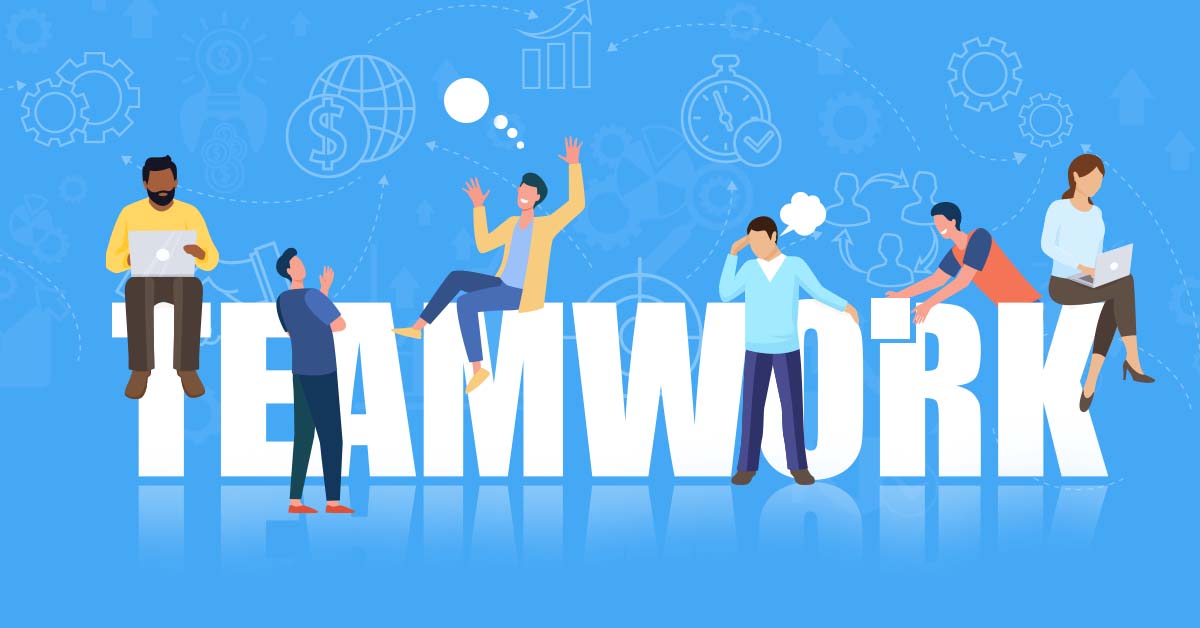Building Bridges: How Effective Teamwork Drives Organizational Success
 Jasper bro
Jasper bro
In today's fast-paced and highly competitive business environment, organizations must continuously adapt and innovate to stay ahead. One of the most critical factors contributing to an organization's success is effective teamwork. When employees collaborate efficiently, they can achieve more significant results, drive innovation, and create a positive work culture. The adage "Teamwork Makes the Dream Work" underscores the importance of collaborative efforts in achieving organizational goals. This article explores how effective teamwork drives organizational success, highlighting key components and benefits of fostering a collaborative environment.
Clear Goals and Objectives
Effective teamwork begins with establishing clear goals and objectives. When team members understand the organization's vision and their specific roles in achieving it, they can align their efforts towards common goals. Clarity in objectives reduces confusion, minimizes conflicts, and ensures that everyone is on the same page.
Strong Leadership
Leadership plays a pivotal role in fostering effective teamwork. Leaders must set the tone for collaboration by promoting open communication, encouraging diverse perspectives, and providing support. Strong leaders also recognize and leverage the unique strengths of each team member, creating a cohesive unit that works harmoniously towards shared goals.
Open Communication
Open communication is the backbone of effective teamwork. Teams must establish channels for transparent and honest communication, enabling members to share ideas, provide feedback, and address issues promptly. Regular meetings, brainstorming sessions, and collaborative tools can facilitate open dialogue and ensure that all team members are heard.
Key Components of Effective Teamwork
Trust and respect among team members are essential for effective collaboration. When individuals trust each other, they are more likely to share ideas, take risks, and support one another. Respect for each other's skills, opinions, and contributions fosters a positive work environment where everyone feels valued.
Diverse Skill Sets
A diverse team brings together a wide range of skills, experiences, and perspectives. This diversity can lead to innovative solutions and better decision-making. By leveraging the strengths of each team member, organizations can tackle complex challenges more effectively and achieve superior results.
Accountability and Responsibility
The adage "Teamwork Makes the Dream Work" encapsulates the essence of this concept, highlighting how collaboration and unity can drive exceptional results. Effective teamwork requires a sense of accountability and responsibility among team members. Each individual must take ownership of their tasks and deliverables, ensuring that they meet deadlines and maintain high-quality standards. When team members hold themselves and each other accountable, they create a culture of reliability and trust.
The Benefits of Effective Teamwork
One of the most significant benefits of effective teamwork is enhanced productivity. "Teamwork Makes the Dream Work" is more than just a catchy phrase; it is a powerful principle that underscores the importance of collaboration and unity in achieving success. When team members collaborate efficiently, they can complete tasks more quickly and accurately. This increased productivity allows organizations to achieve their goals faster and gain a competitive edge in the market.
Improved Innovation
Innovation thrives in a collaborative environment. When team members share ideas and build on each other's contributions, they can develop creative solutions to complex problems. Effective teamwork encourages a culture of experimentation and continuous improvement, driving innovation and organizational growth.
Higher Employee Engagement
Employees who work in collaborative teams are more likely to be engaged and satisfied with their jobs. Teamwork fosters a sense of belonging and camaraderie, making employees feel more connected to their colleagues and the organization. Higher employee engagement leads to increased motivation, lower turnover rates, and better overall performance.
Building a Culture of Teamwork
Organizations must invest in training and development programs to build effective teams. These programs can help employees develop essential teamwork skills, such as communication, conflict resolution, and problem-solving. Continuous learning opportunities ensure that teams remain adaptable and capable of tackling new challenges.
Recognizing and Rewarding Team Efforts
Recognizing and rewarding team efforts is crucial for maintaining motivation and reinforcing the value of collaboration. Organizations should celebrate team achievements, provide incentives for collaborative success, and acknowledge the contributions of individual team members. This recognition fosters a positive work environment and encourages continued teamwork.
Creating a Supportive Work Environment
A supportive work environment is essential for effective teamwork. Organizations must provide the necessary resources, tools, and infrastructure to facilitate collaboration. This includes offering flexible work arrangements, ensuring access to technology, and creating spaces that encourage teamwork and creativity.
Google’s Project Aristotle
Google’s Project Aristotle is a prime example of how effective teamwork drives organizational success. The project aimed to identify the key characteristics of high-performing teams within the company. Google discovered that psychological safety, dependability, structure and clarity, meaning, and impact were crucial for team success. By fostering these elements, Google was able to enhance team performance and drive innovation across the organization.
Toyota’s Production System
Toyota’s Production System (TPS) is another example of the power of teamwork. The TPS emphasizes continuous improvement and respect for people, creating a culture where employees at all levels work together to improve processes and quality. This collaborative approach has enabled Toyota to become a global leader in the automotive industry, known for its efficiency and innovation.
Conclusion
Effective teamwork is the cornerstone of organizational success. By building a culture that values collaboration, trust, and open communication, organizations can unlock the full potential of their teams. The phrase "Teamwork Makes the Dream Work" aptly captures the essence of how collaborative efforts lead to extraordinary achievements. As organizations continue to navigate an increasingly complex and competitive landscape, fostering effective teamwork will remain a critical driver of sustained success.
Subscribe to my newsletter
Read articles from Jasper bro directly inside your inbox. Subscribe to the newsletter, and don't miss out.
Written by
